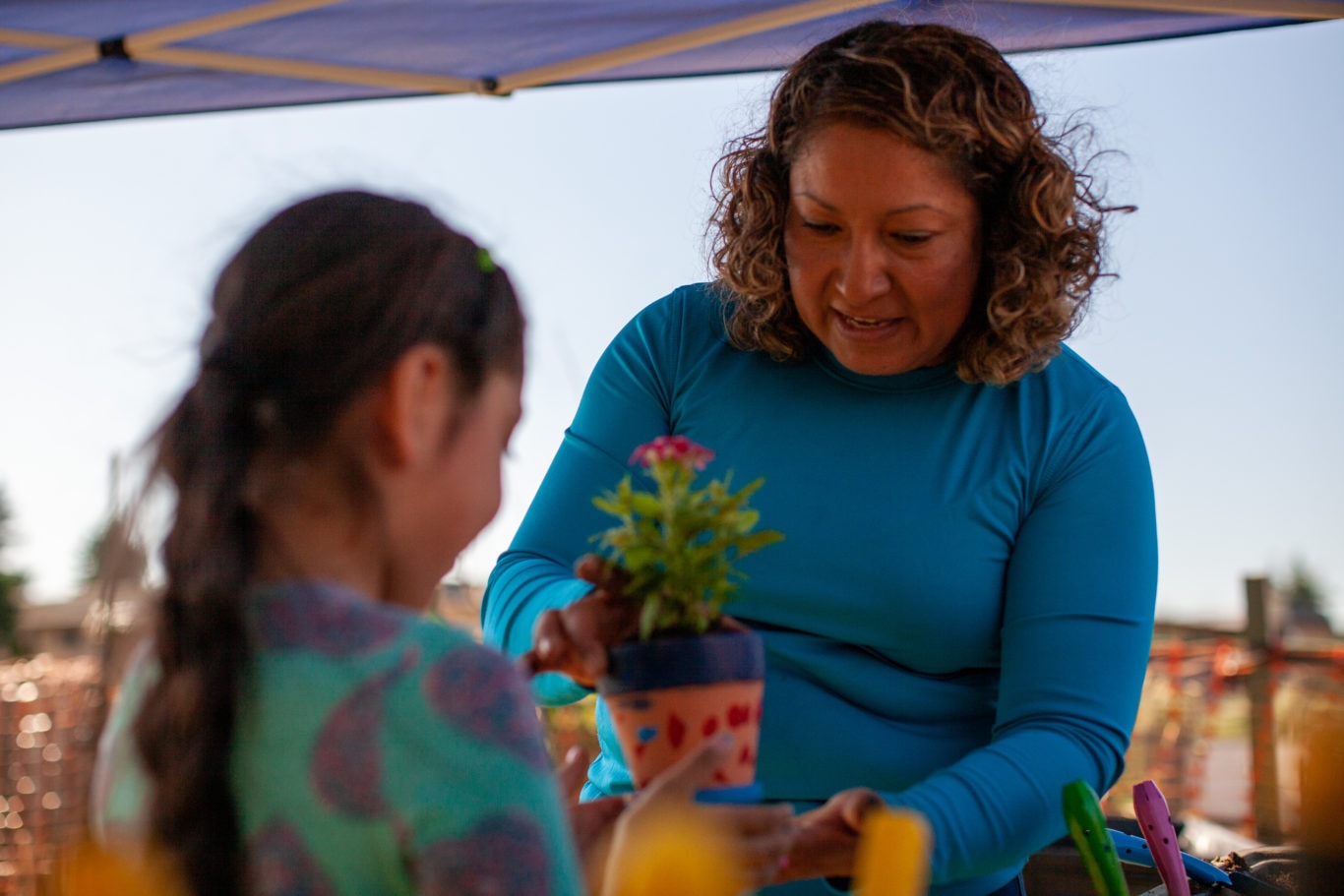Hunger and Humanity: Connecting Food Justice and Child Care
Hunger and Humanity: Connecting Food Justice and Child Care
Hunger and Humanity: Connecting Food Justice and Child Care
Poverty is the single biggest driver of hunger. When people earn a living wage, have access to affordable housing, healthcare and education, and no longer face the barriers of systemic discrimination, we are all better equipped to buy healthy and nourishing food. And one of the biggest drivers of poverty in Oregon is the child care crisis.
In Oregon, families face child care deserts in almost every single county. Even if parents can find a child care provider, exorbitant costs lead to impossible choices between child care and other basic needs, with child care for two children costing a typical Oregon family 38.5 percent of their yearly income. And we know that women, lower-income families, families of color, and families in rural regions are the hardest hit by the lack of access and affordability.
Finding child care is particularly difficult for single mothers, who face the highest food insecurity rates in the United States and the majority of whom earn incomes below the poverty line. Across the United States, more than 24 million children live in single-parent households, which are five times as likely to experience poverty as married and dual-income households. Yet state and federal programs that help single mothers and caregivers afford food, housing and utilities are consistently targeted with funding cuts and eligibility restrictions.
Child Care + Hunger in Oregon
Almost every county in Oregon as of 2022 is a “child care desert,” meaning they lack adequate child care for infants and toddlers. Half of Oregon counties are child care deserts for preschool-age children, with public funding playing a crucial role in providing existing access to preschool-age child care. A 2023 report found that fifteen percent of parents in Oregon with children under six years old had to quit, change or refuse a job because of problems with child care during 2020-2021.
Infant care in Oregon costs 31.4 percent more per year than in-state tuition for four-year public college. And child care workers face low wages, burnout and lack of benefits creating instability in reliable child care and meaning a median child care worker in Oregon would have to spend 55.2 percent of their earnings to put their own child in infant care. The U.S. child care system relies on women of color, and yet caregiving labor continues to be undercompensated.
Across the state, child care is one of the most significant burdens for families facing poverty. We know that public funding has made the most significant difference for families across the state. No one should have to choose between quality, supportive child care and meeting their family’s basic needs like food. Investing in child care across Oregon is necessary to end hunger and ensure every family has what they need to thrive.
Resources
- Baby Promise: Baby Promise offers free, full-day quality care and education for eligible children ages 6 weeks to 3 years old. Baby Promise is a state funded program designed to help families find and maintain high-quality infant and toddler care.
- Black Mamas Matter: Advances Black maternal health, rights and justice.
- Child Care for Oregon: A coalition of nonprofit organizations, labor unions, community advocates, parents, caregivers and providers working to build a comprehensive child care system in Oregon.
- Community Child Care Initiative (CCI): The Community Child Care Initiative offers Portland families and child care providers financial assistance for child care. Eligible families pay no more than 8 percent of their monthly gross income for child care. The program is funded by the Portland Children's Levy.
- Employment Related Child Care (ERDC): ERDC is a state subsidy to help families afford child care. Subsidy amounts depend on the child's age, caregiver employment, provider type and location within the state.
- Our Children Oregon: Advocates, connectors, and educators who bring communities together to share best practices, learn from experience, and inform through data.
- PDX Diaper Bank: Provides no-cost diapering supplies to low-income and houseless families through community agency partnerships.
- Portland Public Schools Pre-Kindergarten: Portland Public Schools (PPS) offers preschool opportunities to families who live within PPS boundaries and are 3 or 4 years old by September 1. Families can email prekprograms@pps.net for assistance.
- Preschool for All: Connects 3- and 4-year-olds in Multnomah County to free, culturally responsive, inclusive preschool experiences.
- Preschool Promise: Preschool Promise is available to families who are at or below 200 percent of the federal poverty level. It is open to children who are 3 and 4 years old. Preschool Promise is a state-funded program and offers preschool slots in school, centers, and with in-home preschool providers.
Learn More
- Centering Single Mothers on Women’s History Month (Oregon Food Bank)
- Child Care Costs in Oregon (Economic Policy Institute)
- How Child Care Disruptions Hurt Parents of Color Most (American Progress)
- Oregon’s Child Care Crisis (Statesman Journal)
- Oregon Child Care Deserts (Oregon State University)
- The US Child Care System Relies on Women of Color, but Structural Barriers Systematically Disadvantage Them (Urban.org)
